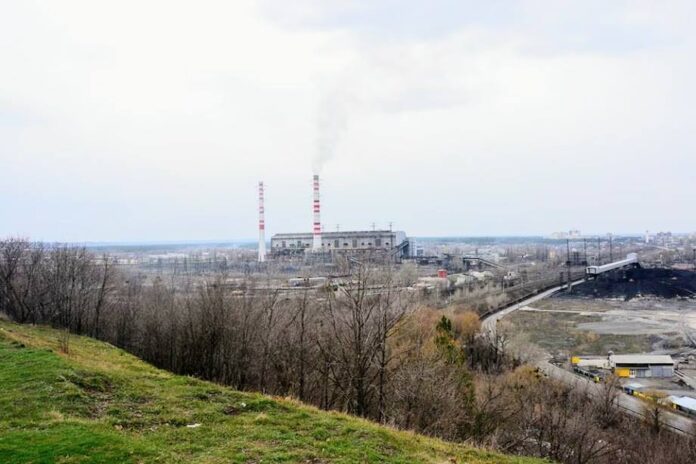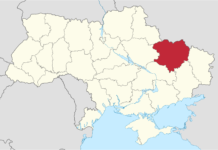Earlier today, Russian forces launched a series of air strikes that targeted and devastated an essential electricity plant near Kyiv, in addition to impacting power facilities across various regions of Ukraine. This attack, occurring more than two years into Russia’s comprehensive invasion, has placed considerable stress on Ukraine’s already beleaguered energy infrastructure, with the Trypilska coal-powered thermal power plant near the capital being completely obliterated, according to a senior official from the operating company.
Social media footage revealed the severe damage inflicted on the Soviet-era facility, with fire and thick smoke emanating from the site. These developments have led to a renewed urgency in President Volodymyr Zelenskiy’s appeals for defensive support from the international community, as he labeled the attacks as acts of “terror” and criticized the slow response and lengthy deliberations over providing aid.
In retaliation to Ukrainian drone strikes on its own oil, gas, and energy facilities, the Russian defense ministry announced it conducted these strikes as part of a massive counteroffensive, employing drones and high-precision, long-range weaponry from air and sea platforms. This marks a significant intensification in the tactics used, directly targeting the infrastructure critical to Ukraine’s energy system’s functionality and resilience.
Ukraine’s dire situation is further underscored by the destruction of the Trypilska Thermal Power Plant (TPP), a key electricity supplier to the Kyiv, Cherkasy, and Zhytomyr regions. Centrenergo, the energy company overseeing the plant, lamented the total loss of power generation capabilities across its facilities, attributing the scale of destruction as an unprecedented challenge in the company’s history.
The systematic targeting of Ukraine’s energy infrastructure by Russian forces appears to be a deliberate strategy to undermine the Ukrainian spirit by disrupting essential services, especially during the harsh winter months. This strategy not only seeks to demoralize the Ukrainian populace but also to create a humanitarian crisis through the lack of electricity, heating, and water.
President Zelenskiy’s call for more robust air defense systems from Western allies has become more urgent in light of these attacks. He stressed the importance of air defense systems and other forms of defense assistance as crucial to preventing Russia from continuing its strikes on Ukrainian energy infrastructure, which he views as tantamount to endorsing global terrorism.
Despite the widespread destruction, Ukrainian officials remain resilient, with Andriy Gota of Centrenergo expressing confidence in overcoming the challenges posed by the attacks. Ukraine has previously managed power losses, such as when Russian forces took control of the Zaporizhzhia nuclear power plant, a major source of the country’s power generation. However, the current attacks on the energy infrastructure exacerbate the difficulties faced by Ukraine in ensuring a steady power supply to its citizens.
The international response to Ukraine’s calls for assistance has been mixed, with some Western aid being slowed or stalled in Congress. This has placed additional pressure on Ukraine as it navigates the complexities of defending its sovereignty and ensuring the welfare of its population amidst ongoing hostilities. The need for immediate and effective support is more critical than ever, as Ukraine faces the dual challenges of military aggression and infrastructural resilience.
Image is licensed under the Creative Commons Attribution-Share Alike 4.0 International license and was created by Negus73.










